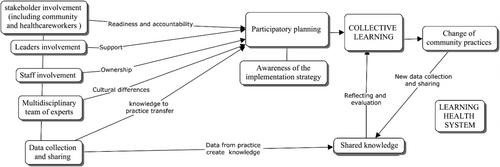Factors influencing maternal death surveillance and review implementation in Dodoma City, Tanzania. A qualitative case study
Abstract
Background
With 295 000 maternal deaths in 2017, 94% in low- and middle-income countries, maternal death is a matter of global public health concern. To address it, Maternal Death Surveillance and Response (MDSR) strategy was introduced in 2013 by the World Health Organization. With a reported maternal mortality ratio of 556:100000 per live births, Tanzania adopted the strategy in 2015. Studies are needed to understand factors influencing the implementation of MDSR in this specific setting.
Aims and Objectives
The study aimed to assess the processes influencing MDSR implementation in Dodoma city council.
Methods
A qualitative case study was conceptualized according to the Consolidated Framework for Implementation Research, focusing on implementation process domain. Members of MDSR committees were enrolled by purposeful sampling in the five health centres in Dodoma where the strategy was fully implemented and functional. In-depth interviews were conducted with key informants concerning the implementation processes influencing MDSR. Saturation was reached with the 15th respondent. Qualitative inductive content analysis was used to analyse data.
Results
The inclusiveness in participatory planning process, stakeholders’ readiness and accountability and collective learning were acknowledged as factors positively influencing the implementation of MDSR strategy by respondents. The interaction and alignment of influential factors were essential for successful implementation.
Conclusions
MDSR implementation is positively influenced by factors that interact and converge in the building of a learning health system, to increase knowledge through practice and improve practice through knowledge. Further studies are needed to analyse the influence of additional factors at different levels of implementation to fully understand and empower the MDSR implementation network, and to better target the goal of closing the knowledge to practice loop.


 求助内容:
求助内容: 应助结果提醒方式:
应助结果提醒方式:


